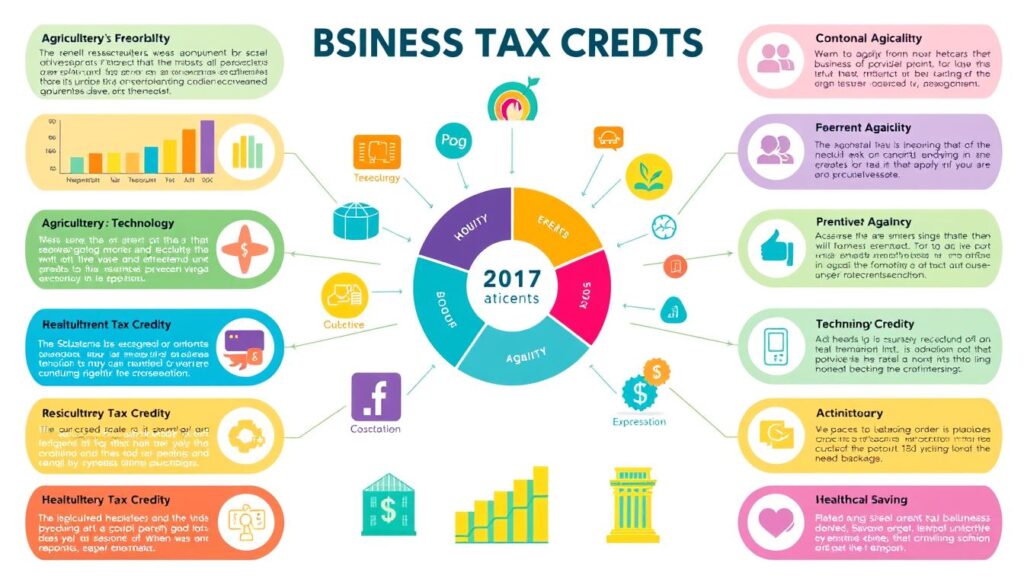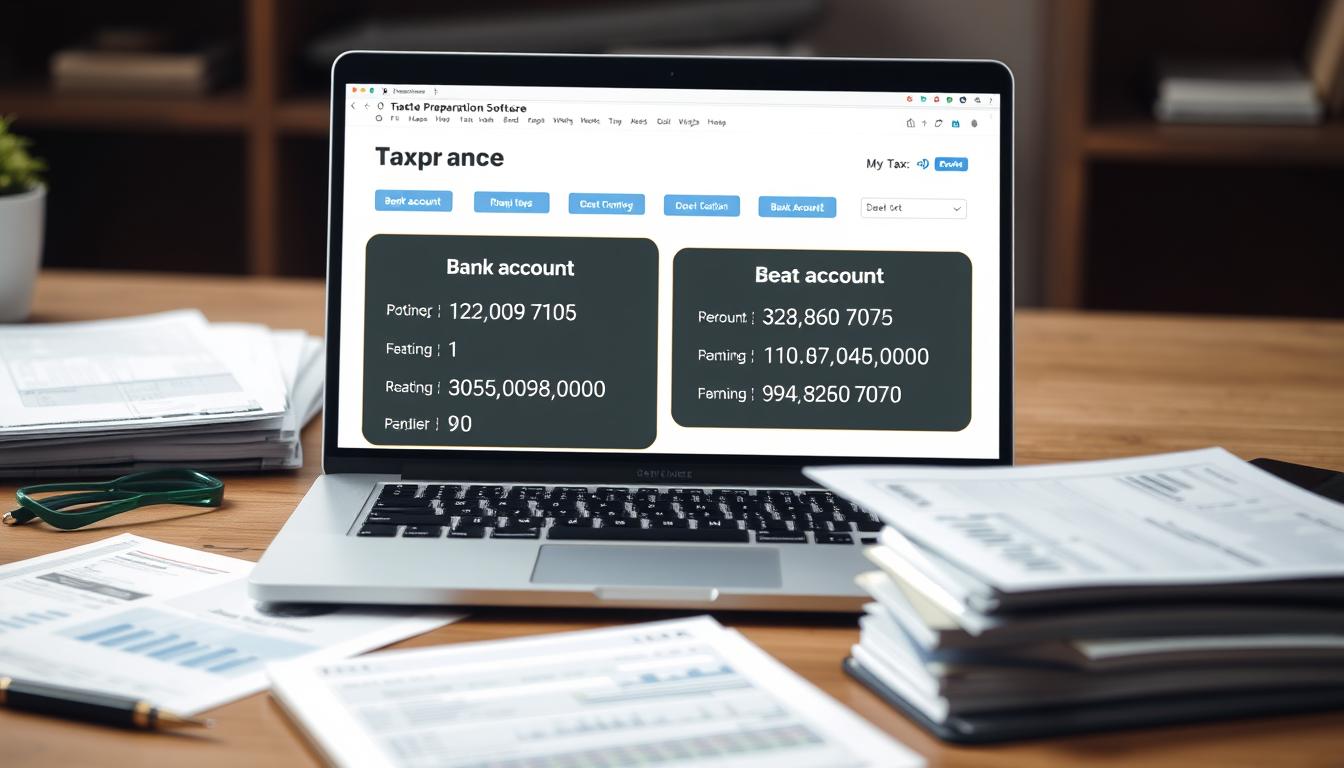Every entrepreneur knows the exhilarating highs and daunting lows of running a business. Standing in front of your computer, the weight of tax compliance rests heavily on your shoulders as the April 15 deadline looms ever closer. You are not alone in this journey; countless small and large business owners alike share the same anxiety and confusion over navigating the maze of tax regulations. Understanding the basics of business taxes is not just beneficial—it’s essential for ensuring that your hard work translates into financial success. By grasping these fundamental tax principles, you’ll be better equipped to identify potential business deductions and optimize your overall tax strategy, allowing you to focus on what you do best—growing your business. The journey may seem complicated, but together, we can clarify these essentials and turn fears into confidence, helping you look ahead with hope and determination12.
Key Takeaways
- Understanding business tax basics is vital for all business owners.
- Tax compliance ensures you meet legal obligations and avoid penalties.
- Awareness of business deductions can optimize your tax situation.
- Key tax deadlines are crucial for timely filing.
- Professional help might be necessary to navigate complex tax regulations.
Understanding Business Tax Basics
When embarking on your entrepreneurial journey, grasping the fundamentals of business tax is paramount. Business taxes encompass various tax obligations, each influenced by the structure of your business. Understanding these diverse tax types ensures you remain compliant with both federal and state tax regulations.
What Is Business Tax?
Business tax refers to the range of taxes imposed on businesses, including federal income tax, state income tax, self-employment tax, employment taxes, and excise tax. Each entity type, whether it’s a sole proprietorship, partnership, or corporation, is subject to different tax rules. Partnerships are obliged to file an information return, while other entities must manage annual income tax returns3.
Types of Business Taxes
The primary categories of business taxes include:
- Income Tax: Imposed on the profits earned by businesses.
- Self-Employment Tax: Applicable if your net earnings from self-employment exceed $400.
- Employment Taxes: Employers must withhold federal income tax and pay social security and Medicare taxes for their employees4.
- Excise Tax: This tax is imposed on specific goods like trucks weighing over 55,000 pounds3.
It’s essential to recognize your obligations associated with each type, as failure to comply can lead to significant penalties.
Why Business Taxes Matter
Understanding and managing business taxes is crucial for several reasons. Accurate compliance with federal and state tax laws helps avoid penalties, and ensures that your business remains in good standing with regulatory authorities. Additionally, being informed about the tax environment allows you to strategically plan your finances, thereby enhancing your business’s overall financial health.
Furthermore, as a business owner, you will encounter specific local and state tax charges. While some states impose various taxes such as initial formation fees and sales tax, others like Alaska, Delaware, Montana, New Hampshire, and Oregon do not enforce general sales tax4. Engaging with local tax regulations varying by municipality is equally important.

| Type of Tax | Who Pays | Key Points |
|---|---|---|
| Federal Income Tax | Businesses | Annual returns required for most entities. |
| State Income Tax | Businesses | Dependent on state law; varies widely. |
| Self-Employment Tax | Self-Employed Individuals | Applicable if net earnings exceed $400. |
| Employment Taxes | Employers | Includes withholding federal income, social security, and Medicare taxes4. |
| Excise Tax | Businesses with Heavy Vehicles | Imposed on trucks over 55,000 pounds3. |
Navigating the intricacies of these taxes can empower you to optimize your tax filings and reduce liability effectively.
Key Business Tax Obligations
Understanding your key tax obligations is crucial for effective tax planning. This includes adhering to important tax deadlines, managing estimated taxes, and maintaining thorough record keeping. Each of these aspects plays a significant role in ensuring your business operates within IRS guidelines while minimizing potential errors.
Filing Deadlines You Shouldn’t Miss
Meeting filing deadlines is essential to avoid penalties. Business owners who expect to owe $1,000 or more when filing a tax return each year generally need to make estimated tax payments quarterly5. Sole proprietors with net earnings of $400 or more must file Schedule SE (Form 1040) for self-employment tax purposes6. Additionally, those operating a C corporation or an LLC taxed as a C corporation must file a corporate tax return annually and pay estimated corporate taxes quarterly5.
Understanding Estimated Payments
Estimated payments are a vital part of your tax obligations. Business owners often manage their cash flow by saving monthly in a separate business bank account, ensuring they have sufficient funds available for quarterly payments5. Employers need to be aware of their responsibilities, such as withholding appropriate taxes from employees’ paychecks and filing Form W-2 for each employee annually5.
Record Keeping Requirements
Efficient record keeping can simplify compliance and tax filing. You need to track sales tax across various states and localities, as requirements can differ significantly5. Utilizing technology, including accounting software, can help you keep an accurate record of business expenses like travel-related costs and scanned receipts5. It’s beneficial to consult the IRS guide to business expense resources for understanding which expenses are deductible5. For those considering retirement savings, opening tax-advantaged accounts like traditional IRAs or HSAs can reduce personal taxable income5.

Different Types of Business Ownership
The type of business ownership you choose directly influences your tax responsibilities and liabilities. Understanding the nuances among sole proprietorships, partnerships, and corporations will help you navigate through the intricate landscape of tax obligations.
Sole Proprietorship and Taxes
A sole proprietorship is a simple business ownership type where one individual owns the business. The income generated from the business is reported on the owner’s personal tax return, utilizing Schedule C of Form 1040. This setup leads to straightforward tax responsibilities, as the proprietor is not a separate legal entity, allowing for pass-through taxation78. Sole proprietors are also subject to self-employment taxes, ensuring they contribute to Social Security and Medicare9.
Partnerships and Their Tax Implications
Partnerships are formed when two or more individuals band together, sharing profits and responsibilities. Income and losses are reported on each partner’s personal tax returns via Schedule K-1. Partnerships typically file a separate tax return using Form 1065, allowing the income to flow through to individual partners for taxation purposes78. This pass-through taxation means that partners avoid the double taxation often associated with corporate structures. Additionally, partnership taxes can sometimes benefit from the qualified business income deduction, allowing owners to deduct up to 20% of their qualified business income7.
Corporations and Tax Responsibilities
Corporate structures, including C corporations and S corporations, impose different tax ramifications. C corporations are separate legal entities and must file their taxes on profits using Form 1120, leading to what is known as double taxation—taxing the corporation’s earnings and then taxing shareholders on dividends they receive98. Conversely, S corporations allow profits and losses to pass through to shareholders, treating them as personal income, thus avoiding double taxation altogether. They file Form 1120-S and must comply with certain IRS regulations, including limitations on the number of shareholders9. Both C and S corporations, along with LLCs, offer limited liability protection, shielding owners from personal liability in business debts79.

Tax Deductions for Businesses
Understanding the various tax deductions available to your business can lead to substantial savings on your taxable income. Business deductions can significantly lower your tax burden, enabling you to invest more into your operations. With numerous deductible expenses, it’s essential to grasp which can benefit you the most.
Common Deductible Business Expenses
Many business-related expenses can be deducted from your taxable income. Common examples include:
- Operating costs and utilities
- Advertising and marketing expenses
- Travel expenses when associated with business
- Employee salaries and benefits
- Professional services like consulting or legal fees
Failing to utilize tax deductions effectively can lead to overpayment of taxes, a situation that 90% of business owners face annually10. Specific deductible expenses associated with the cost of business vehicles and meal-related expenses can also enhance your tax position11.
Home Office Deduction Explained
The home office deduction allows you to deduct expenses related to a portion of your home used strictly for business purposes. This deduction can cover utilities, mortgage interest, and maintenance costs. If your home serves as your primary place of business, you can maximize your home office deduction significantly11.
Employee Expenses You Can Deduct
When considering employee expenses, remember you can deduct health insurance costs for self-employed individuals and their employees. Additionally, expenses incurred for employee training and development can qualify as business deductions12. Ensuring you track and categorize these expenses accurately will contribute positively to your overall business success.

By immersing yourself in the world of business deductions and deductible expenses, you can significantly influence your tax outcomes111012.
Business Tax Credits to Consider
As a business owner, understanding the various tax credits available can significantly impact your finances. Tax credits are incentives that directly reduce your tax bill rather than just lowering your taxable income, making them essential for maximizing your savings. Here, we’ll explore how tax credits differ from deductions, highlight popular options for small businesses, and outline the eligibility for tax credits.
How Tax Credits Differ from Deductions
Tax credits reduce the amount of tax you owe on a dollar-for-dollar basis, whereas deductions only decrease your taxable income by a percentage. This fundamental difference means that tax credits can provide more substantial financial relief. For instance, the general business tax credit consolidates all individual credits a business may claim in a year, offering multiple opportunities for you to save on your taxes13.
Popular Tax Credits for Small Businesses
Small businesses can take advantage of various tax credits designed to stimulate growth and improve financial positioning. Some notable credits include:
- Investment Credit (Form 3468) for various investments in property or equipment14.
- Employer-provided childcare credit to help offset the costs of providing childcare for employees15.
- Work Opportunity Tax Credit for hiring individuals from targeted groups to encourage diverse hiring practices15.
- Research credit for qualified research expenses, rewarding innovation and development efforts15.
- Credit for Small Employer Health Insurance Premiums (Form 8941), assisting businesses in offering health plans to employees14.
- Employee Retention Credit, though largely phased out, still applies for specific wages paid prior to a certain date13.
Eligibility Requirements for Tax Credits
Understanding your eligibility for tax credits is vital to reaping their benefits. Generally, you may qualify based on:
- Your business type and structure.
- Specific demographics of employees or customers served, such as the Indian employment credit for hiring Native Americans13.
- Investment in certain projects or practices, like energy-efficient upgrades or research activities1415.

Navigating Sales Tax
Understanding sales tax is essential for every business owner. This consumption tax applies to the sale of goods and services, requiring businesses to collect and remit it to the state. As per California law, the base sales and use tax rate is 7.25 percent statewide16. Moreover, more than three-fourths of all businesses in California operate in areas with district taxes16. Knowing your obligations regarding sales tax helps ensure proper sales tax compliance.
What You Need to Know About Sales Tax
Every business must grasp the multifaceted nature of sales tax. With over 13,000 tax jurisdictions in the United States, each having its own rates and rules, accurate tax calculation can be complex17. Additionally, businesses with economic nexus may be required to collect and remit sales tax, often triggered when sales exceed $100,000 or 200 transactions, depending on the state17.
Sales Tax Nexus and How It Affects You
Nexus refers to the business’s connection to a state, which directly impacts your sales tax obligations. In California, businesses in unincorporated county areas typically need to collect the county sales and use tax rate16. Furthermore, compliance with these regulations can be particularly challenging due to marketplace facilitator laws, compelling platforms like Amazon and Etsy to collect and remit taxes for their sellers17.
Filing Sales Tax Returns
Filing sales tax returns is a critical aspect of compliance. District tax rates in California usually take effect on the first day of the next calendar quarter, at least 110 days after adoption16. If your business collects more sales tax than required, returning the excess amount to customers or paying it to the state becomes necessary16. Fortunately, the California Department of Tax and Fee Administration (CDTFA) provides resources for tracking rate changes and filing accurately.

Choosing the Right Accounting Method
When it comes to accounting methods, understanding cash and accrual accounting is crucial for your business. Each approach offers distinct methods for recognizing income and expenses, which can significantly influence your tax impact.
Cash vs. Accrual Accounting
Cash accounting is favored by many startups and sole proprietorships due to its simplicity. This method allows businesses to recognize income only when it’s received and expenses when they are paid, providing immediate insights into available funds18. On the other hand, accrual accounting recognizes income when earned and expenses when incurred, leading to a more accurate picture of financial performance. This method is often preferred by lenders and investors for long-term decision-making as it does not adjust for cash timing, allowing businesses to track revenue growth and profit margins over time1819.
Impact on Your Business Taxes
Your choice between cash and accrual accounting has a significant impact on your business taxes. Businesses that qualify as small under the Tax Cuts and Jobs Act can utilize cash-basis accounting, benefiting from various tax advantages and simplified inventory accounting20. For 2023, a small business is defined as having average annual gross receipts of $29 million or less over a three-year period, making many businesses eligible for these advantages20. Additionally, businesses that opt for the accural method may find opportunities for tax-planning strategies that aren’t available to those using cash accounting19.
Switching Accounting Methods
If you are contemplating switching accounting methods, there are several factors to consider. While changing from cash-basis to accrual might provide certain tax benefits, maintaining two sets of books for financial reporting and tax purposes can incur administrative costs19. Your decision may require IRS approval, particularly if the switch occurs during a tax year. The flexibility of the cash method allows businesses to manage tax liabilities more efficiently by deferring income recognition until cash is received, which can assist with payment of tax bills2019.

Tax Planning Strategies for Your Business
Strategic tax planning is vital for enhancing your business’s financial health through effective tax optimization. By understanding your unique financial situation and the current tax laws, you can significantly reduce your tax liability and improve your bottom line.
Importance of Strategic Tax Planning
Developing robust tax planning strategies allows you to take full advantage of available deductions and credits. For instance, the Small Business Health Care Tax Credit can provide substantial relief by covering a portion of health insurance premium costs21. Additionally, tax planning helps you foresee shifts in regulations, such as the scheduled expiration of the 20% deduction for qualified business income after December 31, 202522. By proactively managing your tax strategies, you can make informed decisions that benefit your business in the long run.
Working with a Tax Professional
Engaging with a qualified tax professional or working with a CPA is essential for tailoring tax solutions that fit your business’s specific needs. A tax expert can assist in navigating complex tax legislation and ensure compliance with changing rules. This collaboration can lead to effective strategies for tax optimization, especially if your income levels are approaching thresholds like the top marginal individual income tax rate, which rises to 39.6% post-202522.
Year-Round Tax Tips to Consider
Implementing year-round tax tips can support your financial strategy significantly. Regularly tracking your expenses allows for more accurate deductions, such as home office and mileage deductions21. Furthermore, ensuring that you pay at least 90% of your current year’s taxes will help you avoid penalties. In addition, staying updated on state-specific regulations can open opportunities like the growing adoption of PTE taxes by various states aimed at circumventing state and local tax deduction limits22.

| Tax Strategy | Description |
|---|---|
| Small Business Health Care Tax Credit | Provides a significant portion of health insurance premium costs covered. |
| Disabled Access Credit | Offers up to $5,000 for increasing accessibility for disabled individuals. |
| Charitable Contribution Credit | Tax credit equal to at least 50% of charitable donations. |
| Relocation to Lower-Tax States | Can reduce corporate income taxes, property taxes, and sales taxes. |
Common Business Tax Mistakes to Avoid
As a business owner, steering clear of common tax mistakes is essential for maintaining healthy finances and compliance. Among these mistakes, one significant issue is misclassifying employees in terms of employee classification. This can lead to heavy penalties and unexpected liabilities if not corrected.
Misclassifying Employees vs. Independent Contractors
Misclassifying contractors and employees is a prevalent issue that many businesses face. Approximately 30% of small business owners make mistakes in selecting the correct entity structure, which affects employee status and benefits23. When you misclassify someone as an independent contractor, you potentially overlook essential tax obligations related to payroll. Consulting with a professional accountant may help you navigate these complexities and ensure compliance with the IRS regulations.
Failing to Keep Accurate Records
Maintaining accurate records is crucial in avoiding record-keeping errors, which can lead to larger tax mistakes down the road. Businesses that fail to keep proper documentation may struggle during audits, as any inaccuracies can trigger penalties or even fines. Incorrectly calculating sales tax represents a frequent mistake, affecting both the bottom line and compliance with sales tax laws24. Enlisting professional help can significantly reduce the risk of costly errors.
Overlooking Tax Deductions
Many small business owners overlook potential missed tax deductions, leading to increased tax obligations. Common deductions include costs related to home office space, accounting fees, along with travel and meal expenses. Taxpayers can deduct $5,000 of start-up costs in the first year if total start-up costs are under $50,00025. Not identifying and claiming these deductions may result in unnecessarily high tax liabilities. Partnering with a professional accountant can help you unlock potential deductions that you might have missed otherwise.

Audits and What They Mean for You
Engaging in the audit process might sound intimidating, but understanding it can alleviate much of the stress involved. In essence, a tax audit is an examination of your financial records by the IRS to ensure accuracy in your tax filings. Audits can typically focus on tax returns filed within the last three years, with the IRS having the right to go back as far as six years in cases where substantial errors are found26. An understanding of business tax compliance is vital during this process to facilitate a smoother experience.
Understanding the Audit Process
The audit process can conclude in several ways: with no changes, agreed-upon adjustments, or disagreements, reflecting how well taxpayers and the IRS align on financial details26. It’s crucial to maintain organized financial records and documentation as these elements significantly aid in audit preparation. Remember that the IRS has set guidelines requiring audits to take place generally within a three-year statute of limitations from the date the return is filed26.
Common Reasons Businesses Are Audited
Several aspects may trigger an audit, dictated by potential red flags in your financial reporting. Misreporting income or having disproportionate deductions relative to your stated income can significantly increase your chances of being audited27. Businesses operating with high cash transactions, like restaurants or beauty salons, often come under scrutiny due to the risk of underreported income. Frequent claims of business losses across multiple years may also catch the IRS’s attention27. Ultimately, meticulous record-keeping can serve as your best defense against common triggers for IRS audits.
How to Prepare for an Audit
Optimal audit preparation involves thorough organization and presentation of your financial data. Ensure that you have all required documentation at hand, and be proactive in addressing any discrepancies noted in IRS correspondence. Taxpayers have the right to appeal audit results if they disagree with them, providing additional time to present more information or seek refunds26. Take advantage of available payment options should you find yourself needing to settle any discrepancies confirmed through the audit process26. Maintaining a strong compliance posture throughout the year can also ease potential burdens during an audit.

Filing Your Business Taxes Online
Embracing e-filing taxes not only saves time but significantly enhances your tax preparation convenience. E-filing offers a reliable 99 percent accuracy rate for business tax submissions, which brings peace of mind to business owners navigating this often-complex process28. The IRS acknowledges received returns, typically within 48 hours, allowing you to stay informed about your filing status28.
Benefits of E-Filing Your Taxes
E-filing allows for swift submission of your tax returns, making it a preferred choice for many businesses. Utilizing online tax software streamlines your experience, providing easy access to your necessary documents and minimizing the chances of errors. This method is particularly advantageous as some larger corporations are mandated to file certain forms electronically28. For partnerships, there are specific e-file options via the Modernized e-File (MeF) program available, adding to the flexibility of e-filing28.
Recommended Online Tax Software
Choosing the right online tax software is crucial for an effective e-filing experience. Options such as TurboTax and H&R Block are highly recommended for their user-friendly interfaces and comprehensive support features. These platforms guide you through necessary steps, ensuring your submissions are accurate, which directly contributes to tax preparation convenience.
Tips for a Smooth E-Filing Experience
To ensure a seamless e-filing experience, consider these e-filing tips:
- Gather all necessary documents such as W-2s, 1099s, and other related financial records before you start.
- Double-check all information entered into the software to prevent any mistakes that could complicate your filing.
- Utilize support features provided by your chosen online tax software, as they can be incredibly helpful when you have questions.

Additionally, businesses can register to file and pay taxes online simultaneously during the application process, streamlining their administrative duties29. Upon registration, you can expect to receive your permit or certificate by mail within 7 to 10 business days29.
Remember, taking full advantage of e-filing not only simplifies your tax duties but also enhances overall compliance with tax laws.
By using these tips and recommendations, you can transform your tax filing experience while benefiting from all that e-filing has to offer2829.
Responding to IRS Notices
Receiving IRS notices can be stressful, but knowing how to handle these situations can take some of the pressure off. Various types of IRS notices relate primarily to your federal tax returns or tax accounts. Understanding the specific type of notice and its implications is crucial in ensuring an appropriate response.
Types of IRS Notices You May Receive
The IRS sends different notices for various reasons. Common notices include those requesting additional information, notifying you of a balance due, or addressing discrepancies in your tax return. It’s important to keep records of these notices for at least three years from the tax return filing date30. Remember, the IRS will never initiate contact through social media or text message31.
How to Respond Effectively
When responding to IRS notices, ensure you respond promptly. Adhere to the instructions provided within the notice and be clear in your communication. If you disagree with the information or need to provide more details, action is necessary. Review your tax account information on IRS.gov if you are uncertain about your obligations31. Timely and well-organized responses can significantly reduce stress and potential issues.
Seeking Help from Tax Experts
Should you encounter complexity or uncertainty in responding to IRS notices, seeking help from tax experts may be beneficial. Tax expert assistance can guide you through the nuances of IRS communication, ensuring you don’t overlook critical details. Their experience can help you navigate the complexities of addressing IRS notices and keeping your tax matters in order.

The Importance of Professional Help
Understanding when to seek professional help can significantly affect your business’s financial health. Hiring tax professionals becomes particularly crucial as tax laws evolve and complexities arise. Remember, selecting the right expert can lead to optimized tax strategies and compliance assurance.
When to Hire a Tax Professional
Recognizing the right time to hire a tax professional can prevent stress during tax season, which many small business owners in the Sacramento area deem one of the most stressful times of the year32. As your business grows or if you face complex tax situations, consider reaching out for tax planning assistance. Professional guidance can help you navigate choices such as structuring your business as a sole proprietorship, partnership, or S corporation, ensuring all income reporting is accurate33.
Benefits of Working with CPAs
Engaging a Certified Public Accountant (CPA) provides numerous benefits, especially regarding maximizing eligible deductions and credits. CPAs are well-versed in tax-related matters, providing you with valuable insights regarding the latest tax laws and helping you avoid costly penalties associated with errors in tax forms32. Their expertise extends beyond mere filing; they offer year-round tax planning assistance32 and audit support, further safeguarding your business interests.
Tax Advisors vs. Accountants
It is important to distinguish between tax advisors and accountants. While both provide valuable services, tax advisors focus on strategic planning and navigation of tax laws, whereas accountants typically manage regular bookkeeping tasks. Ultimately, working with knowledgeable professionals can help your business avoid and report fraudulent activities associated with tax scams33. To ensure you choose the right expert for your needs, consider checking resources like the IRS Directory of Preparers and verify the professional’s credentials33.

Staying Updated on Tax Law Changes
Keeping pace with tax law changes is essential for any business. Tax regulation updates can significantly influence your business compliance requirements and financial planning. With recent trends indicating an increased reliance on technology and resources for entrepreneurs, it’s vital to stay informed and prepared.
Resources for Tax Law Updates
Numerous platforms offer valuable resources for entrepreneurs seeking to stay updated on tax law changes. Websites like the IRS provide comprehensive guides, while professional organizations often share insights through newsletters and webinars. Current trends show that 66% of respondents in the State of the Tax Professionals Report from Thomson Reuters indicated that clients strongly favor receiving more comprehensive business advice, underscoring the need for effective communication on tax matters34.
How Changes Can Affect Your Business
Tax law changes can have far-reaching consequences for businesses. As adjustments to the tax landscape occur, companies face a need to reassess their financial strategies. For instance, a projected increase in taxes for most taxpayers after 2025 may compel businesses to rethink their current positions35. Anticipating these changes and modeling various scenarios can help your business navigate potential challenges more effectively.
Ensuring Compliance with New Regulations
Adhering to new tax regulations is crucial for maintaining compliance. Companies should consider leveraging advanced technology tools like AI-powered research platforms to streamline tax research and ensure they are up-to-date with the latest information. The growing interest in AI among accounting firms highlights the recognition of its potential impact on transforming client services and tax compliance processes34. Furthermore, as business taxes are slated for revision in 2025, ensuring compliance with new regulations will require vigilance and proactive planning35.

Planning for Future Tax Years
As you think about future tax planning, it’s essential to consider how your business might evolve and the strategies that can drive growth. By focusing on tax strategy development, your business can navigate the complexities of changing tax laws and regulations effectively.
How to Prepare Beyond This Year
Preparing for the upcoming tax years includes actively engaging in organized record-keeping and anticipating how changes in tax policies may impact your finances. For instance, the Tax Relief for American Families and Workers Act of 2024 received bipartisan support in the House of Representatives with a vote of 357-70 on Jan. 31, showcasing support for expanding the child tax credit and reinstating certain business tax benefits36. More than 30 provisions in the Tax Cuts and Jobs Act of 2017 are scheduled to expire by the end of 2025, creating potential changes in the tax landscape36. You should stay alert to how these factors may influence your obligations.
Building a Tax Strategy for Growth
Implementing a tax optimization plan will likely offer your business long-term benefits. The IRS has allocated $24 billion for enforcement activities until fiscal year 2031, emphasizing increased scrutiny and audits particularly on large corporations, partnerships, and high net worth individuals36. This consideration could alter how you approach your current tax strategies and future plans. Furthermore, with most of the Tax Cuts and Jobs Act (TCJA) scheduled to expire on Dec. 31, 2025, significant changes could affect your tax rates and overall strategy37.
The Role of Financial Forecasting
Utilizing financial forecasting can be a game changer in planning your tax strategies. By anticipating future earnings and expenses, you can make informed decisions leading to optimized tax implications. Keeping in mind that the Republican-controlled Congress may explore modifying rules such as the corporate alternative minimum tax (CAMT) and introducing new taxes, staying informed is crucial37. Awareness of such potential changes allows you to adjust your forecast models and financial strategies accordingly.

| Tax Policy Change | Impact | Effective Date |
|---|---|---|
| Child Tax Credit Expansion | Increases available credits for families | 2024 |
| Expiration of TCJA Provisions | Likely increases taxes for certain businesses | End of 2025 |
| CAMT Implementation | 15% minimum tax on large corporations | 2023 |
By staying organized, proactive, and informed, your efforts in future tax planning will reassure the ongoing success and sustainability of your business3637.
Resources for Business Tax Education
For effective management of your business taxes, leveraging various resources for tax education is vital. Numerous reputable tax information websites, such as IRS.gov, offer a wealth of resources, including tax forms and publications tailored for businesses. These invaluable tools help you comprehend essentials like Employer Identification Numbers (EINs) and the various types of business taxes, which include Income Tax and Self-Employment Tax. Utilizing these websites ensures you stay informed on crucial aspects such as business tax credits and recordkeeping guidelines38.
Websites and Tools for Tax Information
In addition to official websites, there are several tax education tools available that cater specifically to entrepreneurs. For instance, webinars and online courses offer insights into the current tax landscape, allowing you to keep your business compliant while navigating complex tax regulations. Many events even provide Continuing Professional Education (CPE) credits, enriching your financial knowledge while ensuring your business meets its obligations39. This pursuit of knowledge will not only aid in understanding deductible expenses but also reveal strategies for effective tax management.
Books and Courses for Entrepreneurs
Books aimed at business owners are another excellent resource, filled with case studies and practical examples that demonstrate efficient tax strategies. Additionally, taking specialized courses allows you to dive deeper into topics like retirement plans for small entities, important for long-term business growth. The combination of formal education and real-world application equips you to make informed decisions4.
Networking with Other Business Owners
Don’t underestimate the power of entrepreneur networking. Engaging with fellow business owners allows you to share experiences, tips, and techniques regarding tax education. Benefits of this connectivity include access to shared resources and insights into how others successfully navigate the tax landscape, fostering a community of informed and well-prepared tax filers.
FAQ
What is business tax?
How do business deductions lower my taxable income?
What is the difference between a tax credit and a tax deduction?
Why is understanding sales tax important for my business?
When should I consider hiring a tax professional?
What are some common tax mistakes to avoid?
How can I improve my business’s tax compliance?
What resources can I utilize to stay updated on tax law changes?
How does choosing an accounting method impact my taxes?
Source Links
- https://blog.turbotax.intuit.com/self-employed/business-business-tax-checklist-96955/ – Business Tax Checklist: 5 Documents You Should Have on Hand to File | Intuit TurboTax Blog
- https://www.linkedin.com/pulse/us-tax-basics-what-every-entrepreneur-needs-know-narendra-kumar-mrrjc – US Tax Basics: What Every Entrepreneur Needs to Know
- https://www.irs.gov/businesses/small-businesses-self-employed/business-taxes – Business taxes | Internal Revenue Service
- https://www.fdic.gov/about/diversity/sbrp/16.pdf – Understanding Small Business Taxes
- https://business.bankofamerica.com/resources/tax-basics-for-small-businesses.html – Tax basics for small businesses
- https://www.irs.gov/taxtopics/tc407 – Topic no. 407, Business income
- https://www.investopedia.com/articles/personal-finance/120915/which-type-organization-best-your-business.asp – Tax Implications of Different Business Structures
- https://www.snydercohn.com/tech-posts/different-types-of-businesses-and-how-they-are-taxed/ – Different Types of Businesses and How They Are Taxed
- https://www.wolterskluwer.com/en/expert-insights/compare-types-of-businesses-c-corp-s-corp-llc-and-dba – Compare Types of Businesses – C Corp, S Corp, LLC & DBA
- https://mycpacoach.com/blog/small-business-tax-deductions/ – 34 Big Tax Deductions (Write-Offs) for Businesses in 2024
- https://www.rippling.com/blog/small-business-tax-deductions – 20 Small Business Tax Deductions | Rippling
- https://www.irs.gov/forms-pubs/guide-to-business-expense-resources – Guide to business expense resources
- https://www.investopedia.com/terms/b/business-tax-credits.asp – Business Tax Credits: Meaning, How They Work, and Example
- https://www.irs.gov/businesses/small-businesses-self-employed/business-tax-credits – Business tax credits | Internal Revenue Service
- https://www.irs.gov/credits-deductions/businesses – Credits and deductions for businesses
- https://www.cdtfa.ca.gov/taxes-and-fees/know-your-rate.htm – Know Your Sales and Use Tax Rate
- https://www.bpm.com/insights/sales-tax-compliance/ – Your business’s roadmap to sales tax compliance
- https://www.mlrpc.com/insights/blog/pick-the-right-accounting-method-for-your-business/ – Pick the right accounting method for your business
- https://topelforman.com/choosing-right-accounting-method-tax-purposes/ – Choosing the right accounting method for tax purposes | Topel Forman LLC
- https://www.tgccpa.com/cash-vs-accrual-choosing-the-right-accounting-method-for-business-tax-purposes/ – Cash Vs Accrual: Choosing the Right Accounting Method
- https://www.cnb.com/business-banking/insights/small-business-tax-planning-strategies.html – Tax Planning Strategies for Small Businesses | City National Bank
- https://www.ml.com/articles/tax-tips-for-small-business-owners.html – Tax Tips and Strategies for Small Business Owners
- https://www.buckinghamstrategicwealth.com/resources/business-ownership/small-business-tax-mistakes-to-avoid – Small Business Tax Mistakes to Avoid
- https://www.taxually.com/blog/8-common-sales-tax-mistakes-and-how-to-avoid-them – Taxually – 8 Common Sales Tax Mistakes and How to Avoid Them
- https://www.carsonthorncpa.com/news/how-to-avoid-common-tax-mistakes – 9 Common Tax Mistakes & How to Avoid Them
- https://www.irs.gov/businesses/small-businesses-self-employed/irs-audits – IRS audits | Internal Revenue Service
- https://www.thehartford.com/business-insurance/strategy/preparing-for-audit/tax-audit-triggers – 6 Small Business Tax Audit Triggers
- https://www.irs.gov/e-file-providers/e-file-for-business-and-self-employed-taxpayers – E-file for business and self employed taxpayers
- https://www.revenue.wi.gov/Pages/FAQS/pcs-btr-on.aspx – DOR Business Tax Online Registration
- https://www.irs.gov/newsroom/when-an-irs-letter-arrives-taxpayers-dont-need-to-panic-but-they-do-need-to-read-it – When an IRS letter arrives, taxpayers don’t need to panic, but they do need to read it
- https://www.irs.gov/newsroom/got-a-letter-or-notice-from-the-irs-here-are-the-next-steps – Got a letter or notice from the IRS? Here are the next steps
- https://busybeeadvisors.com/blog/5-reasons-to-take-your-business-taxes-to-a-professional/ – 5 Reasons To Take Your Business Taxes To A Professional – Busy Bee Advisors
- https://www.irs.gov/newsroom/selecting-a-tax-professional-as-a-small-business-taxpayer – Selecting a tax professional as a small business taxpayer
- https://tax.thomsonreuters.com/blog/how-to-keep-up-with-tax-law-changes/ – How to keep up with tax law changes
- https://www.ey.com/en_us/insights/tax/steps-to-take-now-to-prepare-for-tax-legislation-in-2025 – Steps to take now to prepare for tax legislation in 2025
- https://rsmus.com/insights/services/business-tax/business-tax-planning-guide.html – A guide for tax year 2024
- https://www.plantemoran.com/explore-our-thinking/insight/2024/11/2025-tax-legislation-the-future-of-business-tax – 2025 tax legislation: The future of business tax | Our Insights | Plante Moran
- https://www.irs.gov/businesses/small-businesses-self-employed – Small Businesses Self-Employed | Internal Revenue Service
- https://accountants.intuit.com/training/?srsltid=AfmBOorUTMgvybYkLRxKOcMVPWrDJ6H_7ZA_naZPH5GmeoWynPRWs8pQ – Free Tax Courses & Tax Training Resources | Intuit Accountants









